For many, ABC arrived fully formed out of the middle of nowhere in 1981 with the breakthrough Top 20 track ‘Tears Are Not Enough’.
Subsequent singles ‘Poison Arrow’, ‘The Look of Love’, ‘All of My Heart’ and the Trevor Horn produced album ‘The Lexicon Of Love’ followed. The band went on to experience a significant amount of commercial chart success before the follow-up and change in musical direction of ‘Beauty Stab’ set them on a self-destructive course of mainly diminishing chart returns.
It eventually resulted in all of the original band members leaving, with the exception of lead singer Martin Fry who still keeps ABC going today. But it was with the release of Eve Wood’s excellent ‘Made In Sheffield’ DVD in 2001 which gave context to a scene, which as well as producing high profile acts THE HUMAN LEAGUE, CABARET VOLTAIRE, PULP and poodle-permed hair metallers DEF LEPPARD, also gave birth to the less successful, but still innovative ARTERY, CLOCK DVA and I’M SO HOLLOW.
Most intriguing out of all the lesser-known bands featured were VICE VERSA, an act who, unless you were an avid reader of the NME or a John Peel listener, would have provoked a reaction somewhere along the lines of “… bloody hell, it’s three of the guys from ABC… but they’re in a synth band!”.
By forming VICE VERSA, Stephen Singleton, Mark White and David Sydenham utilised the DIY aesthetic of punk, which gave bands the impetus to form, book gigs and release records, often without too much thought as to what was really necessary to make the act a success.
Using relatively primitive electronic equipment, the band managed to secure several high profile support slots with WIRE, SIMPLE MINDS, THE THE and THE HUMAN LEAGUE.
Martin Fry latterly replaced Sydenham and the act released several records on their own label Neutron Records which helped bring the act to the attention of John Peel and the independent music press.
Musically, the band pursued a similar path to that of the early HUMAN LEAGUE, but often with a more experimental, almost THROBBING GRISTLE approach to their sound, although still retaining enough musical hooks in their work. Songs like ‘Riot Squad’, ‘New Girls / Neutrons’ and ‘Stilyagi’ were cerebral (and some would argue pretentious) sounding slices of lo-fi electronica which helped generate the band a following during their relatively short lifespan between 1978-1980.
At the backend of last year, Stephen Singleton and Mark White put together the VICE VERSA ‘Electrogenesis 1978-80’ vinyl boxset which neatly tied together all of the band’s recorded output.
It also included a live album, 7” single, booklet and in the spirit of some of the early DIY releases, a rather wonderful ‘build your own’ cardboard synth and pin badge.
Both Stephen and Mark kindly spoke in-depth about their time in VICE VERSA and the rarely documented metamorphosis into ABC.
How did VICE VERSA come about?
Stephen: Mark White and I became friends in 1977; we loved to talk about music and pop culture. He was a Punk and a fan of the same bands as me. Mark wanted to form a band, so we met up and messed around, making noise along with my school friend David Sydenham. We acquired old reel-to-reel tape machines, a WEM Copicat effects unit and a Korg Minipops drum machine, which we bought off a club musician who was retiring from the working men’s club circuit. We were serious, but we retained a sense of fun. We enjoyed the creative process, we loved working in music… it was our passion… it still is. I am committed to the work we did and the work we carry on doing.
VICE VERSA seemed to be a very manifesto driven band, what were your ideologies at the time?
Mark: Yes, we were totally driven to write manifestos! I had read things like the Dada and Surrealist manifestos and loved them; they had such a clear idea of where they were going! I thought we could do the same. FORWARD!!! Actually, this is a thing I miss now about music in the present age; we were very interested in bringing avant-garde ideas into the mainstream and seeing how far you could go with that. It seems to have totally vanished and it’s not a ‘thing’ now is it?
Stephen: We wanted to be more than just a band, we were interested in anything and everything that was to do with the creative processes involved with being in a band.
We designed our own posters and created artwork in as many formats as possible and released product in different formats – record, cassette, photocopied artworks, badges, even video. My old school friend John Davies studied at the Psalter Lane Art School and we got involved in his video coursework and the new cutting edge technology of the video recording and edit suite. Everything we did gave us the chance to be creative and experimental. It was the birth of the independent record labels and we embraced those ideas.
Which artists were most influential on you and what made you start the outfit?
Mark: My music heritage is this…..Glam rock (the holy trinity of Bolan / Bowie / Roxy), then US dance music (in particular CHIC, JAMES BROWN and Salsoul Records) and post-punk influences like THROBBING GRISTLE, THE NORMAL and THOMAS LEER, it was a very rich time to be around.
Stephen: It may seem a little odd to say this, but my parents couldn’t afford a television so the only source of entertainment in my house was a radio. I listened to a lot of music. I loved songs and stories within songs, things like ‘Distant Drums’ by Jim Reeves, ‘The Green Green Grass Of Home’ by Tom Jones and ‘Strangers In The Night’ by Frank Sinatra.
I also loved classical music and instrumental music. For instance, I heard ‘Stranger On The Shore’ the other day and it took me back to that time in the early 1960s when I would sit listening to the radio. Instrumental music to me was evocative and thought provoking. Another instrumental track that I loved was the theme music to ‘The Good, The Bad & The Ugly’.
I loved songs and music and their sounds, stuff like Adam Faith’s ‘What Do You Want?’, with the plucked strings and the way Adam phrased his words in such an odd way. I always listened out for Adam Faith records and I loved songs like ‘Baby Take A Bow’, ‘Easy Going Me’ and ‘The Time Has Come’. I used these John Barry produced records years later as reference points to give to Trevor Horn as an indication of how I imagined string arrangements could work on our ‘Lexicon Of Love’ recordings.
There were so many great songs and artists that I would listen out for. My grandparents had a television and I remember seeing Elvis Presley for the first time acting and singing in ‘Love Me Tender’. Elvis blew me away completely. He had such a presence and charisma. Eventually my parents got a television and the first time I heard electronic music was the ‘Dr Who’ theme music. I just thought “Oh my God what’s that?” it was mysterious and scary.
Watching the television series ‘Robinson Crusoe’ and hearing the soundtrack was another great musician discovery for me. I also heard ‘Sparky’s Magic Piano’; the electronic vocal treatments were amazing. I got more and more interested in music when people like THE WHO, THE ROLLING STONES, THE BEATLES and Motown emerged in the early 1960s.
Why do you think the Glam rock artists were an influence on yourselves and THE HUMAN LEAGUE?
Mark: I think if one listens, the Glam rock influence is very clear. And now I think the new VICE VERSA output reconnects with that – we are rediscovering our Glam roots. In particular the beats / production and the wacky song structures, so fresh… THE SCISSOR SISTERS had a crack at this, but I think VICE VERSA do it better, ‘cause we were THERE!
Stephen: The first artist that I became totally obsessed with was Marc Bolan. I heard ‘Ride A White Swan’ at an under 12s disco at the Top Rank Suite in Sheffield, and once I saw T-REX performing on ‘Top Of The Pops’ that was it! I wanted to know everything about the band. I read everything I could about them, bought the records and played them over and over again.
Then when DAVID BOWIE performed ‘Starman’ on ‘Top Of The Pops’, I had another artist to become obsessed by. There was so much incredible music around during the early 70s, such as ROXY MUSIC, COCKNEY REBEL and SPARKS. Not only did these bands make great music but they also looked fabulous.
It was a golden age for creativity in music. I had pretty much decided that I wanted to be involved in music in some way from about 12 years old, but I had no idea how this would be possible. Listening to music and reading about these artists opened up a whole new world for me. Whatever people like Bowie and Bolan talked about and mentioned as influences, I wanted to know about too.
So I would be down at the Sheffield City Library looking for books by George Orwell, HE Bates, William S Burroughs, Woody Guthrie and Andy Warhol. Books about art movements, graphics and photography and borrowing all manner of weird and wonderful recordings that had been mentioned in interviews I’d read in the NME from the record library, like the Blues artists that had influenced Marc Bolan and experimental music makers from John Cage and Erik Satie. I’d also hang out in a book and record shop called ‘Rare and Racy’, listening to the crazy music favoured by the owners.
Why in your opinion did Sheffield, alongside Manchester and Liverpool, become one of the main musical hubs for electronic music in the UK?
Mark: Sheffield was a very fertile place to make music for two main reasons:
1. It was as boring as hell and so you HAD to make your own entertainment.
2. The process of deindustrialisation meant there were TONS of places to rent very cheaply where bands could rehearse and MAKE A LOT of noise… so we did!
Stephen: In the 70s, there was little to do in Sheffield. I remember the whole city plunged into darkness due to frequent power cuts, the 70s lived by the light of a candle that reflected the dark ages, the beating of the heart of the steel industry was bleak, a whole city in darkness as if we were in an episode of ‘The Twilight Zone’.
I worked in a jewellers shop after leaving school, which I hated and the Punk rock revolution was a huge inspiration, the idea of actually being in a band was fantasy stuff until 1976 when THE SEX PISTOLS and THE CLASH exploded onto the music scene and made anything seem possible.
Although Sheffield didn’t have a bunch of Punk bands in the city, I would say that all of the movers and shakers that would emerge in the late 70s from the city were influenced by the Punk explosion. The ethos that you could go out and do something, form a band, write a fanzine, say something, be creative, and be heard.
Although for the Sheffield bands that didn’t mean being a Xerox copy of what had gone before, they took the energy and spark of Punk, but made it into something different, which I think was the core idea. We didn’t need 1001 versions of THE SEX PISTOLS and THE CLASH…
Was there any rivalry between yourselves and the other Sheffield experimental scene bands?
Mark: There was a great rivalry between us, but I think to the benefit of the music. We all wanted to be the first to break through to the mainstream, and of course we all had similar influences but manifested them in slightly different ways. THE HUMAN LEAGUE cracked it first but as ABC we really nailed it too…
Stephen: The music scene in Sheffield during Punk and Post-Punk was incredible. In a short period of time, there was a vast amount of music being made and performed by THE HUMAN LEAGUE, CLOCK DVA, CABARET VOLTAIRE, I’M SO HOLLOW and ourselves. Everyone was working within an experimental primitive framework. CABARET VOLTAIRE and THE HUMAN LEAGUE were a few years older than VICE VERSA and the age difference felt massive at the time. We operated in our own world and didn’t really have any social connection with them.
I had seen the Cabs play in Sheffield, they were making strange experimental music incorporating drum machines and effects units. I thought they were brilliant. I had not heard of THE HUMAN LEAGUE until we were offered a support slot at Sheffield University where they were performing their second concert. So the first time I heard them was during their soundcheck, they sounded brilliant too, but in a different way to the Cabs; more song-based, closer to KRAFTWERK’s sense of melody, plus they had the whole visual thing going on with the slide projectors. Martyn Ware wrote about VICE VERSA in an article about the Sheffield scene in ‘Smash Hits’ magazine and said positive things about us.
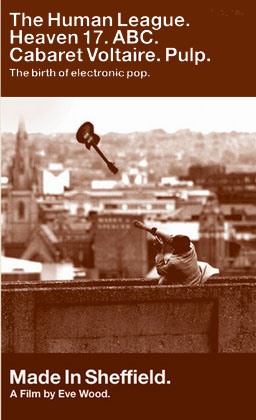 What was your connection with Adi Newton of THE FUTURE and CLOCK DVA?
What was your connection with Adi Newton of THE FUTURE and CLOCK DVA?
Stephen: I first met Adi in the Crazy Daisy nightclub Sheffield in late 1976, the Daisy was the only place that played the early American Punk recordings. Things like ‘Raw Power’ by THE STOOGES and THE RAMONES debut album, along with stuff like JAMES BROWN, ROXY MUSIC, DAVID BOWIE and DR FEELGOOD.
The original Punk scene in Sheffield was made up of a minority, a few people… the majority were what I would call townies – narrow minded f***ing idiots who didn’t have a f***ing clue. It was difficult to be an individual and go against the masses, against the norm. There were times when I took a beating because of the way I looked. I was down in the Daisy with David Sydenham and we spotted Adi, the DJ put on a STOOGES track which cleared the dancefloor, Adi then took to the floor dancing on his own, that’s when we first spoke.
Shortly after that meeting, I got to know him better. He was part of a Sheffield fanzine called ‘Gun Rubber’ and was in the process of forming CLOCK DVA with his friend Stephen Turner. I went along to see the first concerts by DVA, I loved them. They were shambolic, dark, intense, confrontational and dangerous. I would go round to Adi’s flat in Sheffield city centre and listen to the stuff he was creating on his suitcase Synthi AKS; after the success of the first VICE VERSA EP, CLOCK DVA contributed a track to the 1980 ‘First 15 Minutes’ EP and played shows with VICE VERSA.
Your first demo was recorded in Ken Patten’s Studio Electronique, how did that come about and what sort of equipment did you utilise in this and future recordings?
Mark: Ken’s studio was Sheffield’s Abbey Road and we all worked there. He was happy to let us produce the session and concentrated on getting crystal clear sounds from very basic equipment. These days you could do it on an iPad, but it was 19-f***ing-79!!! We now call our London studio ‘Studio Electrophonique South’ in honour of the great man, now sadly passed away.
Stephen: We gave Ken a call and he told us he had recorded synth bands before, he was a great bloke who got great results from his set up which was in the back room of his house in Sheffield. He was an expert in bouncing tracks from one two track machine to another and helped us get some fantastic sounds with his various homemade effects units.
We used our Korg Mini Pops drum machine, a heavily treated bass guitar, Korg Micro-Preset synthesiser, WEM Copicat, a homemade keyboard that David Sydenham had built, and pre-recorded cassette tapes to come up with the soundscape for the ‘Music 4’ EP.
GARY NUMAN asked us how we got the handclap sound on ‘New Girls Neutrons’, we told him we stood around a microphone and clapped our hands, which was true, though we weren’t sure if he believed us or not! By the time we started working on our ‘8 Aspects’ cassette album, we had acquired a Korg MS20 and a Wasp synthesizer.
The MS20 was a fantastic synth, it sounded huge and was so much fun to work with. That was the main synth we used for recording our drum tracks, everything was played manually. Mark had pretty impeccable timing, he needed it to bang out a bass drum pattern onto tape and then overdub a snare all in real time.
Martin Fry wasn’t an original member, how did he join the band?
Mark: Sheffield is a fairly small place and after a while, you start seeing the same faces around. And when one of them is about 6′ 2″ wearing a mahoosive full length leather jacket, it sticks in your head. We got to talking and got on instantly – Martin was writing a fanzine and asked to interview me and Stephen for it.
We enjoyed the interview so much, we asked him to join the band on the spot! Yes, it sounds crazy, but one of the best things we ever did.
At first, he kinda didn’t do much except electronic bleeps in the background on his Wasp synth, but after a recording session in Rotterdam, we discovered he could actually sing. So we promoted him to being lead singer. I am still awaiting my OBE for this magnanimous gesture, so far not forthcoming!
‘Democratic Dancebeat’ sounds like a HEAVEN 17 track waiting to happen, did you ever feel that Martyn Ware and Ian Craig Marsh were in any way influenced by what VICE VERSA were doing?
Mark: ‘Democratic Dancebeat’ is a VICE VERSA hit waiting to happen and we still love it. I honestly don’t think they were really aware of what we were doing, most early protagonists of the Sheffield scene rarely interacted… we were all too busy cooking up something HOT!
Tracks like ‘Riot Squad’ pre-date JOHN FOXX’s ‘Metamatic’, was Foxx-era ULTRAVOX an influence on you?
Mark: Yes, early VICE VERSA loved Foxx-era ULTRAVOX. I remember seeing them at the local Top Rank Suite playing live in about 77-78, they were different and stood out in the Post-Punk scene and seemed very futuristic at the time. JOHN FOXX is a VICE VERSA icon!
Did you feel that your live performances were different to many of your peers?
Stephen: The lack of any sequencing equipment meant we used pre-recorded backing tapes for our live performances over which we played synth parts and saxophone lines. It gave us the freedom to be able to move onstage. We loved the way THE CLASH performed onstage, plus dancing in clubs was a big part of what we enjoyed about clubbing and we loved to move around onstage, which I suppose set us apart from some of the other synth bands of the time.
THE HUMAN LEAGUE had a notoriously hard time preaching electronic music live to the unconverted, how was it for you?
Stephen: Having an unconventional set-up sometimes meant that audiences did not react favourably to us. We were heckled and booed, you can hear some of the crowd reaction to us on a couple of the live tracks that appear on the ‘Electrogenesis’ set, not that we really minded, we wanted to create a reaction, plus we had lived through the Punk rock wars. As William S Burroughs once said “F*** ’em all, squares on both sides!”
How important was artwork and packaging to you in the VICE VERSA releases?
Mark: As pop fan, we loved the sleeves these things came in, it was half the story and informed us about the world the band were coming from. We wanted to carry on in that tradition – music in those days was a much more tactile experience and today it seems to be more about a semi-ghostly presence on the internet…
How did VICE VERSA eventually morph into ABC and why the huge change in direction? In the pre-internet era where information on less mainstream bands was difficult to come by, did many assume that ABC arrived fully formed out of nowhere?
Stephen: After recording the ‘8 Aspects’ tape in April 1980, we did a mini-tour of The Netherlands organised by Martin’s friend Mike Pickering. On a day off, Mike took us to a record shop in Rotterdam called ‘Back Street’, the guy from the shop invited us down to his friend’s recording studio. Just for fun we decided that we would jam using the instruments laying around in the studio, a synthesizer which we programmed simple grooves into, a bass guitar which I played and a guitar which Mark played… we came up with a funky groove with a scratchy guitar sound.
Martin was a huge fan of the writings of Samuel Beckett and Truman Capote so he started rapping and singing about these guys, making us laugh with his ideas “funky Beckett, he was dancing in the library”… we did another tune called ‘Rotterdam’… “Rotterdam, Rotterdam, pots of jam, leg of lamb”. Me and Mark were in hysterics – Martin was ad-libbing and howling and yelping a la JAMES BROWN. This gave birth to the idea of doing something in this vein. VICE VERSA had always been experimental and fun.
We felt our roles could be interchangeable and after recording our ‘8 Aspects’ tape, we wanted to do something different. Martin’s newly discovered vocal talents led Mark to effectively sack himself and concentrate on his guitar style.
One of the very first songs we wrote after the Rotterdam sessions was ‘Tears Are Not Enough’, which was something Martin had said to me in a conversation at one time, I suggested that it was a great line for a pop song.
We loved the funky chukka guitar sound of JAMES BROWN and CHIC. Once we got a groove going, the whole thing fell into place. We had talked about writing boy meets girl love songs and incorporated the line, “a blueprint that says that the boy meets the girl” etc… Very cool!
Mark: We know the change from VICE VERSA to ABC seems baffling to many, but to us it was simply an extension of the VICE VERSA ideas… nothing more. Also me and Stephen had been to see CHIC at Sheffield City Hall and it really opened our eyes to dance music and what could be achieved there.
So we gradually morphed into a period I call ‘VICE ABC’, then eventually became ABC. It was very natural for us and no stress or U-turns. Martin did NOT come along and change everything as I think he would be the first to say, it was a process of metamorphosis already in progression.
Stephen: It never seemed like a massive shift for us to go from VICE VERSA to ABC; VICE VERSA wanted to make electronic dance beat music, we wanted to write good songs. I think if VICE VERSA had the resources to record the songs in a 24 track studio with a great engineer and we had had the chance to promote the songs with a decent budget, then we would have had a hot record doing the VICE VERSA material, but Neutron was run on a shoestring budget.
ABC was a different name, but contained the same members, the difference was we could record and promote our music with the backing of a major company and record in a proper recording studio, rather than on an old reel-to-reel recorder. It appeared as if we came out of nowhere, but we had been working since 1977, writing songs, playing live, releasing a record, getting played on John Peel’s show.
How did it feel when you finally tasted significant mainstream success, when many of your Sheffield contemporaries like ARTERY, I’M SO HOLLOW and CLOCK DVA remained underground with their music?
Stephen: By the time we formed ABC in 1980, we were high on ambition and felt we were writing some great songs. Before we signed a record deal, we had written such songs as ‘Poison Arrow’ and ‘Tears Are Not Enough’.
We knew we were doing something great. So actually ‘making it’ was not really that surprising to us. When we started getting great reviews and record company interest… it wasn’t so much arrogance as a huge amount of self-belief and determination to succeed.
Being in a successful band is a surreal experience, one minute we were on the dole and the next we were riding high in the charts around the world and we would be visiting places that we never imagined visiting and being treated to first class air travel and Five Star hotels. We went from reading about our favourite bands in the New Musical Express to being pictured on its cover. I remember being sat in my bedroom one day playing DAVID BOWIE’s ‘The Man Who Sold the World’ album, and the next day we were hanging out in the recording studio with him, chatting about the album!
At this point, were you celebrated or accused by your peers of “selling out”?
Mark: Yeah it’s funny, when you are Number 1 in the album charts, you kinda don’t give a s*** about what anyone else says, it speaks for itself. I agree most people were only aware of our work as ABC and that’s fine. It’s a body of work I’m very proud of, but not everyone has to be pop professors…
Looking at the success that THE HUMAN LEAGUE (Mk 2) eventually went on to achieve, was there any regrets in changing sound and did any part of you wish you’d stayed truer to your original ethos?
Mark: Personally I don’t regret anything about the VICE VERSA / ABC transformation, but yes, sometimes I do muse on what would have happened if we had continued our VICE VERSA path. I think we were carving out an interesting niche. In fact as part of the ‘Electrogenesis’ project, we have unearthed some incomplete VICE VERSA songs which we have reactivated! Still good in 2015! Amazing!!
How important was the historical exposure and recognition that the ‘Made In Sheffield’ DVD finally gave to you?
Mark: The ‘Made In Sheffield’ DVD is ace, it is a true artefact of the time and is very accurate. How many people have a documentary of their teenage years? I treasure the document…
Stephen: I loved having the chance to tell my story in Eve Wood’s documentary and through the film, I hooked up with Mark again.
The VICE VERSA box set is lovingly packaged, what did you set out to achieve with its release?
Mark: The ‘Electrogenesis’ project took YEARS to hatch… when the time came, it turned out that I had been the sound archivist of the band and dug out a sealed plastic box of cassette tapes.
Stephen had tons of artwork, flyers and photos. so with the inimitable help of Steve Levers on artwork plus Robin Downe and Mark Davies in the studio, we set about assembling it.
It was a total labour of love, but OMG, soooo worth it! The reaction has been very positive, people really seem to get the point in a way that is unique for me as an artist… very satisfying!
Stephen: VICE VERSA called the Post-Punk era the ‘Electro Genesis’ and would describe the music we made as ‘Electro Primitivo’. It was a fantastically productive time for us. We spent a long time tracking down our original recordings, many of which were on scores of cassettes we owned. I checked each cassette to find the best versions of our work, and often the only recorded version of a particular song.
I am happy to say that we finally got there with the project. Some brilliant artists and musicians assisted us on this project, and the final result is better than I could have imagined when I started. The great people who contributed in the making of this artefact always gave their best and put forward creative ideas for me to consider and work with. How f***ing fab is that?
It was such a brilliant creative time back in 1977 Post-Punk, and now to be able to document all of this work in a tasteful and cool manner is amazing and shows off some of the real talent I have had the pleasure to work with. Back then with my original electronic soul brothers David Sydenham, Mark White, Martin Fry and other people who got involved, working to tell the story of VICE VERSA in such a cool way makes me very happy. People will get to hear every significant recording we made during 1978-1980. The story of VICE VERSA in music, the ‘Electrogenesis’.
What about new VICE VERSA material?
Stephen: My favourite new track at the moment is the song we are working on at the moment, a VICE VERSA Christmas song called ‘Little Drum Machine Boy’.
Mark: My favourite is ‘Electro Boogie Baby’. It encapsulates all our influences to date, for me it is like us rediscovering our Glam roots. It feels very natural, it’s what we grew up with, but of course it’s filtered through all our electro sensibilities and very danceable… natch!
Right now we are metamorphosing back into VICE VERSA, a process of ‘Eternal Revolution’ as Mao put it!
ELECTRICITYCLUB.CO.UK gives its grateful thanks to Stephen Singleton and Mark White
The ‘Electrogenesis 1978-80’ box set is released by Vinyl On Demand
https://www.facebook.com/Vice-Versa-Electrogenesis-806726912703189/
https://twitter.com/vvanthology
http://www.discogs.com/artist/248815-Vice-Versa-4
https://en.wikipedia.org/wiki/Vice_Versa_(band)
http://www.sheffieldvision.com/aboutmis_bands_vv.html
Text and Interview by Paul Boddy
Vice Versa Photos by Pete Hill and Ken Patten
15th November 2015

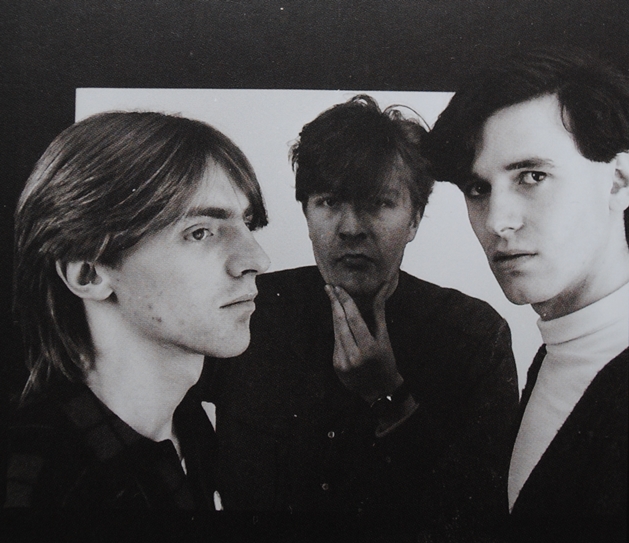
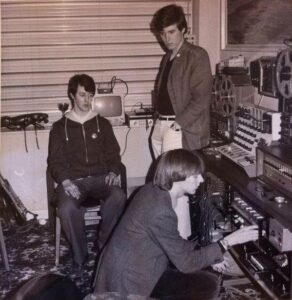
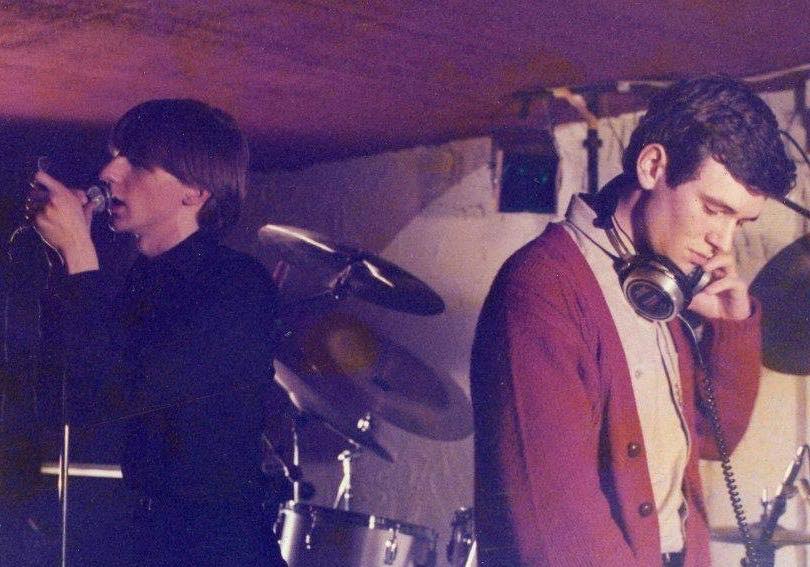
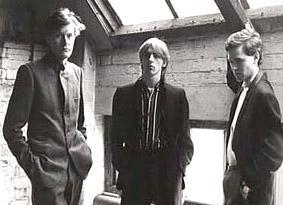
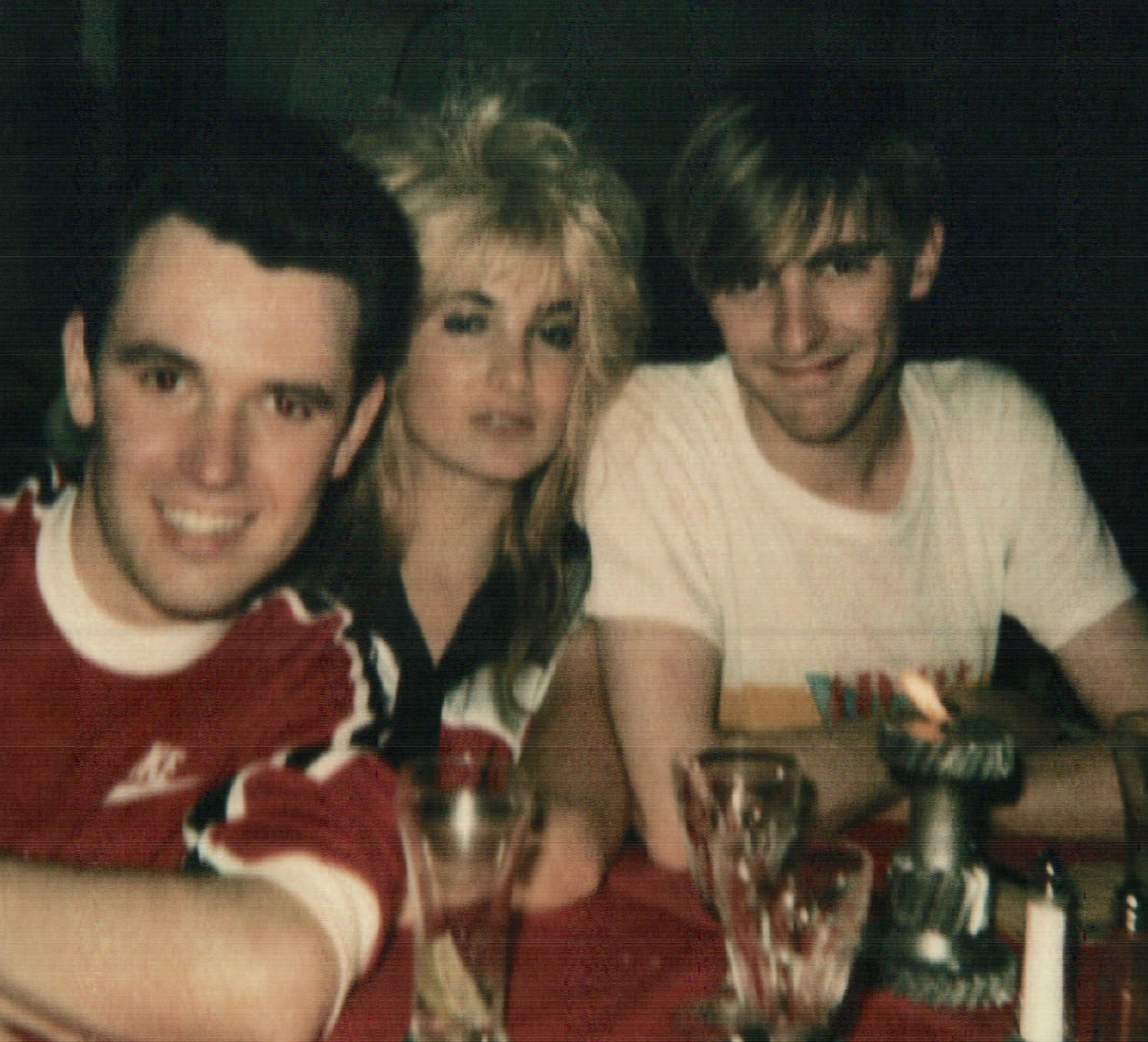
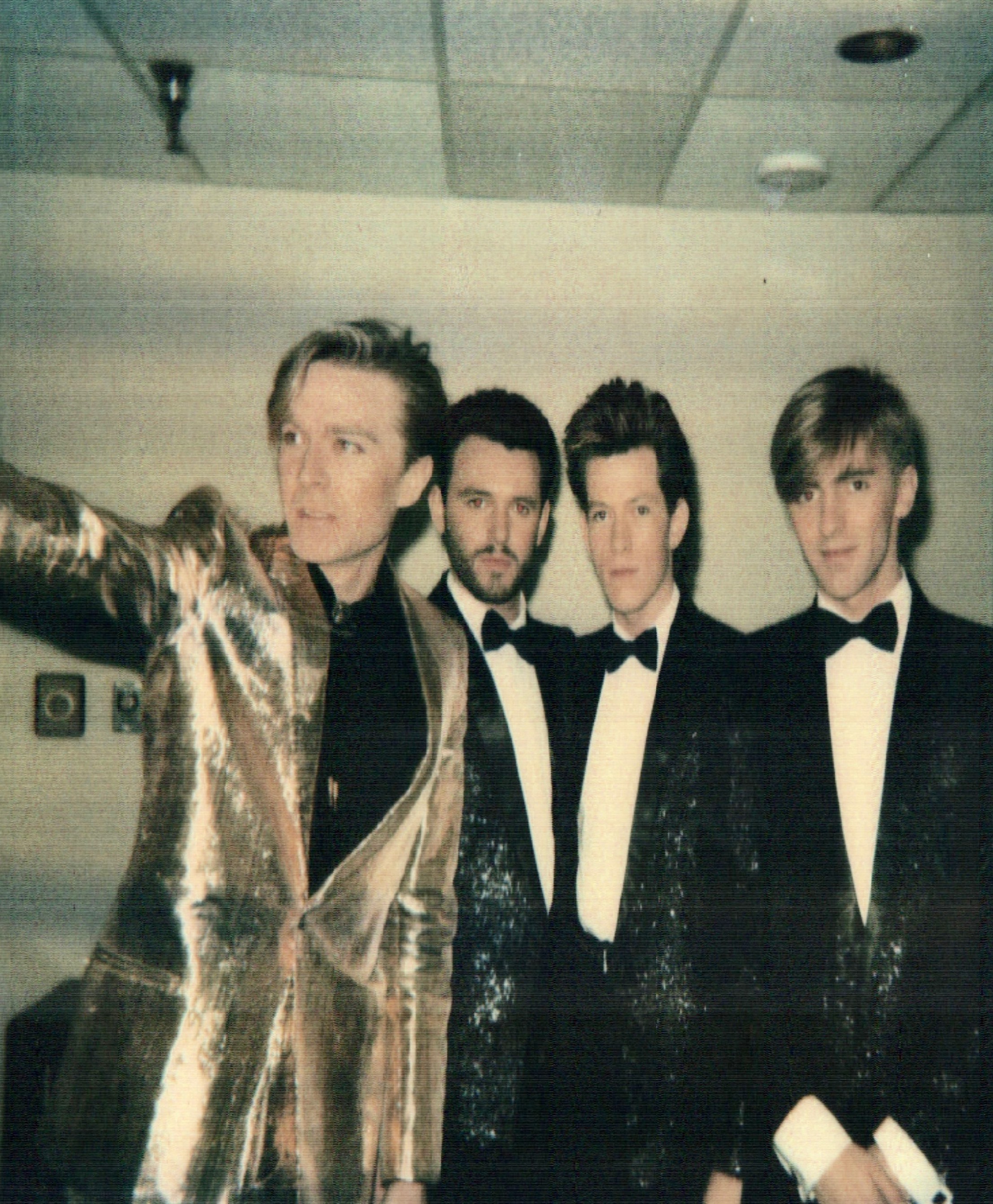
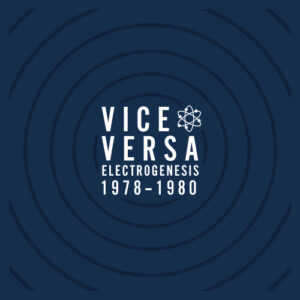
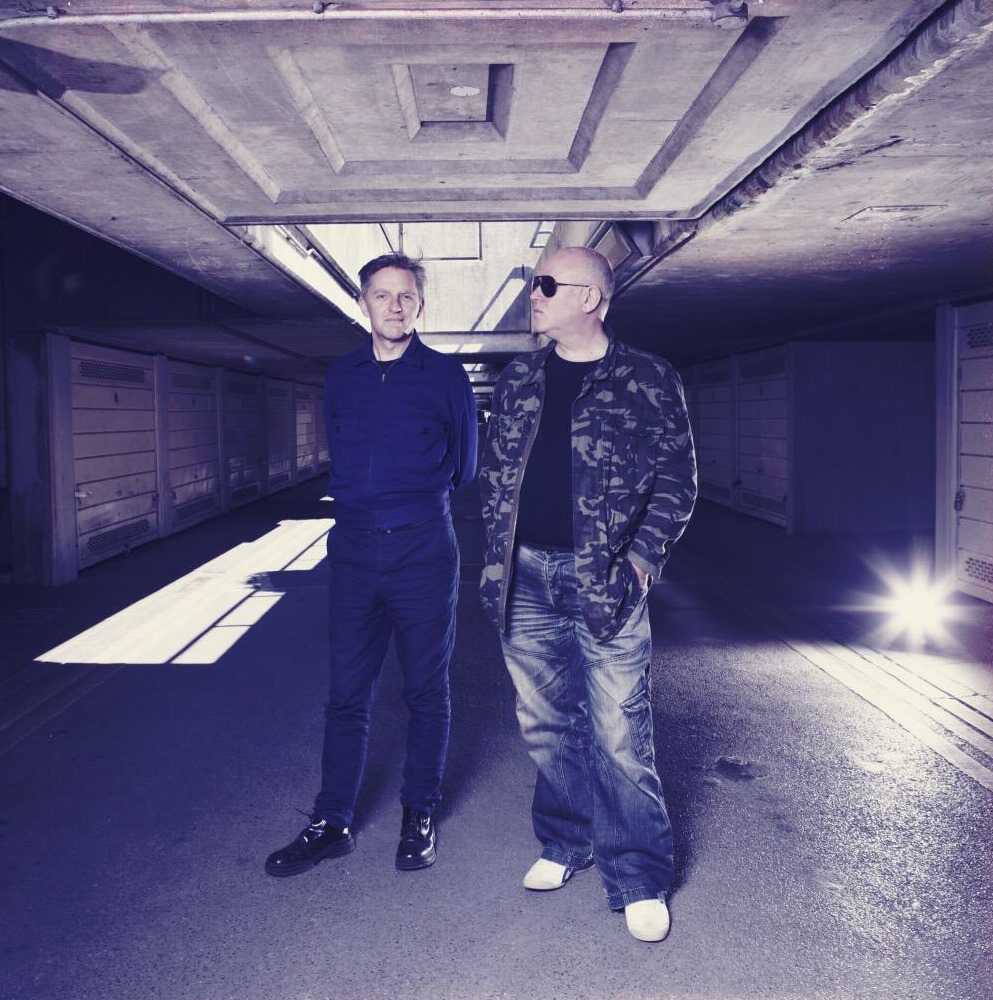
Follow Us!